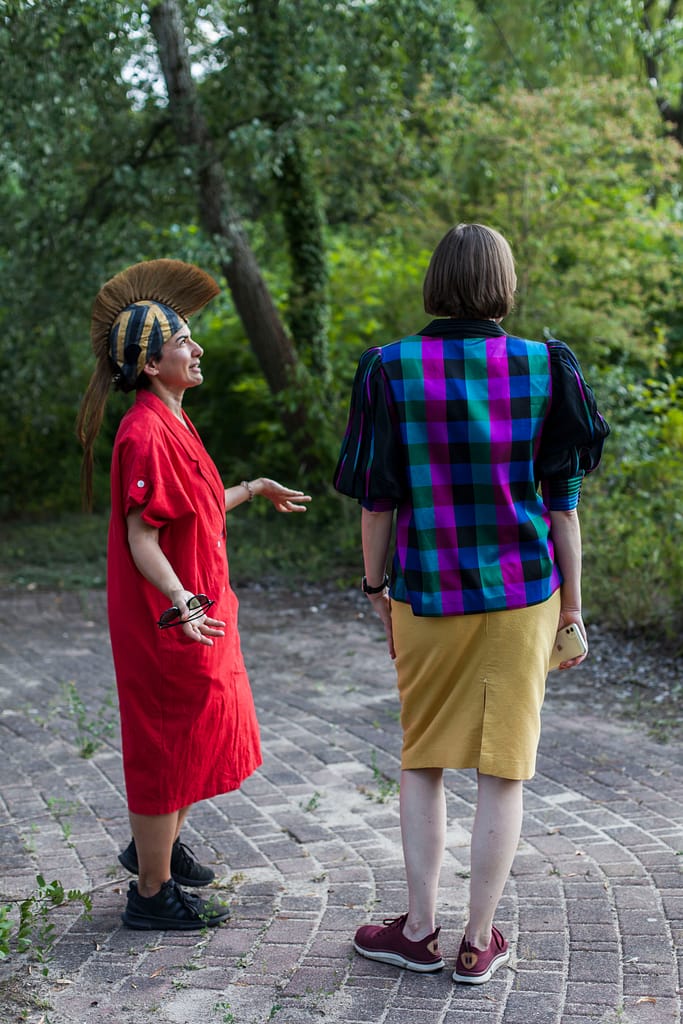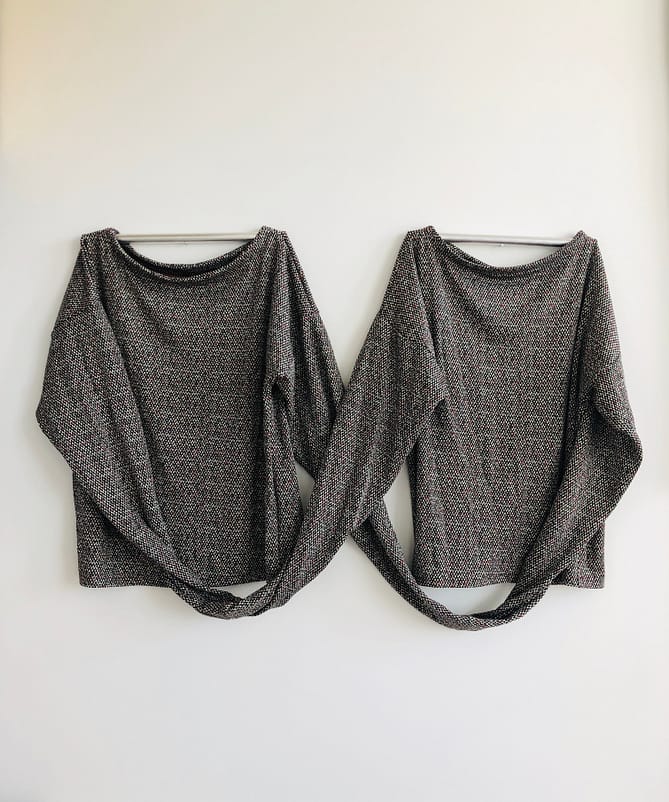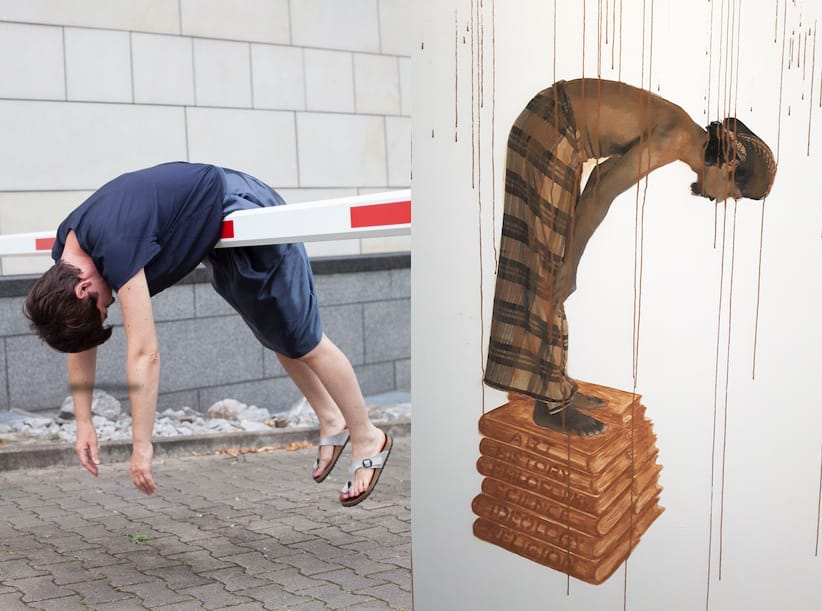Workshop-Reihe im Spreepark „Is the Future Female“?
eine feministische Zeitreise durch den Spreepark mit Nadin Reschke, Secil Yersel & Viktoria Tomaschko

_______________________________________________________________________________

Workshop-Reihe im Spreepark „Is the Future Female“?
Nadin Reschke mit Secil Yersel & Viktoria Tomaschko
Wie verändert das, was ich trage, das, was ich sehe und erlebe? Mit Stoffen und speziell für den Spreepark entworfenen Kleidungsstücken und Requisiten lädt die Künstlerin Nadin Reschke ein, den ehemaligen Vergnügungspark „Spreepark“ auf eigene Faust zu entdecken und sich selbst in dessen Kulisse zu inszenieren. Die Geschichte des Parks vom Kriegsende 1945 bis nach dem Mauerfall ist eine männliche Geschichte. Frauen waren in den Planungs- und Ent-scheidungsprozessen weder anwesend noch wurden sie überhaupt gehört. Daher stellen wir die Frage: Wie kann der weibliche Blick heute zur Zukunft des Spreeparks beitragen, diese beeinflussen oder herausfordern? Der Spreepark wurde zu DDR Zeiten mehrfach als Kulisse für Modefotografien genutzt. Einige der historischen Fotografien dienen uns als Vorlage und Forschungsgegenstand, um gemeinsam durch Selbstinszenierungen und Fotoshootings einzelne Szenen neu zu interpretieren. Wie verstehen wir als Frauen die Geschichte des Spreeparks, wie erleben wir den ver- wilderten Zustand heute und welche Perspektiven bringen wir in die Zukunft des Parks mit ein? Stoffe und textile Materialien können in vielfältiger Weise genutzt werden und laden zum spielerischen Kennenlernen und Entdecken der Umgebung ein. Zusammen mit der Künstlerin Seçil l Yersel und der Fotografin Victoria Tomaschko entstehen in den 4 Workshops viele vor Ort inszenierte und/oder collagierte Fotografien, die die Teilnehmer*innen mit nach Hause nehmen können.
DER SPREEPARK
Der ehemalige Vergnügungspark „Spreepark“ im Plänterwald wird durch die landesei- gene Grün Berlin GmbH zu einem Park für Kunst, Kul- tur und Natur weiterentwickelt und soll 2024 wieder- eröffnen. Bis dahin werden in einer Laborphase interaktive Bildungsformate zu dem Themen-Dreiklang „Kunst, Kultur und Natur“ kostenlos angeboten.
TEILNAHME
Eingeladen sind alle Alt- und Neu-Berli- ner*innen, die Lust haben ihren eigenen Blick auf den Park und sich selbst zu erforschen. Die Teilnahme an allen 4 Terminen ist erwünscht, aber kein Muss. Für die Dauer der Workshops wird eine kostenlose Kin- derbetreuung vor Ort angeboten. Die Workshops sind kostenfrei, eine Anmeldung ist erforderlich (7 Plätze).
1. Workshop: 7. August, 15-18 Uhr Rundgang im Park, Beispiele der Modefotografie im Park, Ausprobieren von Stoffen und Kleidern, Foto- Shooting.
2. Workshop: 28. August, 15-18 Uhr Mit Gast-Künstlerin Seçil Yersel, Blick in Foto-Archive und Collagieren eigener Ideen und Entwürfe.
3. Workshop: 4. September, 15-18 Uhr Treffen mit den Modedesign-Student*innen, Vor- stellung der Entwürfe, Anprobe, Selbstinszenierungen und Foto-Shooting mit Victoria Tomaschko im Park.
4. Workshop: 18. September 15-18 Uhr Präsentation der Ergebnisse in einer textilen Installation, Diskussion und Erfahrungsaustausch.
KONTAKT + ANMELDUNG
Email: info@nadinreschke.de oder Grün Berlin GmbH: Email: labor.spreepark@gruen-berlin.de
Die Workshop-Reihe findet hauptsächlich im Freien statt. Die geltenden Abstandsregeln zur Bekämpfung von SARS-CoV-2 werden während des Projektes eingehalten. Sollten die Workshops zu den geplanten Terminen aufgrund der Ausbreitung des Coronavirus (SARS-CoV-2) behördenseitig nicht stattfinden dürfen, setzen wir Sie rechtzeitig in Kenntnis.
Ein Projekt gefördert von der Grün Berlin GmbH in Kooperation mit dem Kostümkollektiv e.V.
_______________________________________________________________________________
TROUBLING FORMS
Nadin Reschke & Setu Legi
29. 03 – 21. 04. 2018
Sarang Gallery, Yogyakarta, Indonesia
Troubling Forms was realised in collaboration with: Caroline Rika Winata, Om Syamsul, Prapti Alpandi, Surya Wirawan, Agustina Ponila, Oktafianti Putri, Dodi Irwandi, Silvana Fadlilah, Dian Astuti, Agustina Rahma, Sisca Dwi Ananda , Nana Lou Reschke, Leo Aranya, Josha Ananta, Embun, Rozzan, Dito, Aoi, Stefani, Christina Schott, Fendry Ekel dan Ferdi Thajib

The up-rise of new rightist movements, racism, xenophobia and the growing social inequality in Europe threatens basic democratic values like tolerance. What is the situation in Indonesia, a country with such cultural, religious and linguistic diversity?
Do you feel you live in a tolerant society? How do you experience in/tolerance in your daily life? Are you tolerant with yourself? With these and other questions artists Nadin Reschke from Berlin and Setu Legi from Yogyakarta opened a common space of enquiry and invited people to collaborate in their project „Troubling Forms“.
Starting point was a workshop in Batik Simbut – a traditional batik technique using rice flour and palm sugar. Answers, viewpoints as well as individual experiences were batiked as texts and images on large cotton flags. The artists and participants continued with taking the questions onto the streets and into daily life, interviewing neighbours, friends and people in Yogyakarta.
Bringing all voices together creates a multitude of positions and viewpoints. The result is a tent made from all Batik cottons sewn together referring to a longhouse. The betang – a traditional form of long, narrow housing in Borneo, where the community lives together sharing public and private areas – serves the artists as a model for a common space, where everybody is equally respected.
Nadin Reschke engages with social issues, collaborating with people from outside the art world, initiating communication between them and creating a framework for social action. She has spent a one-month-residency in Yogyakarta on invitation of KUNCI and OFCA International, which was supported by the ifa – Institute for Foreign Cultural Relations Germany and Jogja InterKultur.
Setu Legi understands art as a medium to express social critic and to initiate development. He usually explores all kind of media and techniques in his installations. This is his third collaboration with Nadin Reschke after 2005 in Yogyakarta and 2006 in Dresden.
______________________________________
We cordially invite you to:
IF ONLY WE COULD
A dialogue between Nadin Reschke & Setu Legi
Thursday, March 8th, 3 pm-5.30 pm at KUNCI Cultural Studies Center, Jl. Ngadinegaran MJ III/100, Yogyakarta 55141

Berlin-based artist, Nadin Reschke, uses this proclamative subjunctive to examine some of her collaborative projects in public space. In her artwork she engages with social issues, collaborating with people from outside the art context, triggering communication and creating a framework for social action. For her work “So far so good“, Nadin travelled for 2 years with a tent to 14 countries. In this journey, she embroidered on the tent in collaboration with artists and different communities of each country she visited. For the latest project “VEST“ she engaged with women from a Women’s Association in setting up a fashion label narrating migration history through individually designed and sewn clothes.
Nadin is now in Yogyakarta on a 1 month research residency collaborating with Setu Legi on a project researching batik traditions in the light of social and political changes. Both artists will engage in a conversation and share reflections on the linkages between their artistic practices and the political meanings of “social action“.
This project is hosted by Jogja Interkultur & KUNCI, and supported by the Artists Contact program of the ifa -Institut für Auslandsbeziehungen.
______________________________
Paikallisväri
Rauma Museum- Marela, Rauma, Finnland
22.4.-16.07.2017
Nadin Reschke in collaboration with Erika Raittila, Kristiina Virtanen, Meri Haavisto and Rauman Seudun Työttömät (Rauma Unemployment Office)
www.raumars.org
__________________________________________________________________________________
AUSSTELLUNG
SIMULIZI MIJINI / URBAN NARRATIVES Things don’t really exist until you give them a name.
16. – 28. März 2017
Ausstellungsort: Zentrum für Kunst und Urbanistik (ZK/U)
Die Ausstellung dokumentiert und diskutiert die im Austausch von afrikanischen und deutschen Künstlern und Forschern entwickelten Arbeiten. Ausgangspunkt ist die Fragestellung nach Formen der kulturellen Repräsentation von Alltagspraxis als gesellschaftliches Kulturerbe.
http://www.zku-berlin.org/satellite/simulizi-mijini/
www.urbannarratives.org
—————-
EXHIBITION
SIMULIZI MIJINI / URBAN NARRATIVES Things don’t really exist until you give them a name.
March 16 – March 28, 2017
Center for Art and Urbanistics ZK/U
The exhibition documents and discusses the exchange of the artworks by African and German artists and researchers. The leading question of the project is how social representations of everyday life are shaping our cultural heritage.
http://www.zku-berlin.org/satellite/simulizi-mijini/
www.urbannarratives.org
______________________________________________________________________________
Tongue Lecture
with Leslie Kuo and Nadin Reschke
Akademie der ZUsammenKUNFT, Berlin
28.10.2016, 5 pm
The Akademie der ZUsammenKUNFT at the House of Statistics, is a platform for exchanging artistic practices and other forms of knowledge. The academy is part of the activities of the House of Statistics, located in a vast tower block complex at Alexanderplatz in Berlin. The aim of the House of Statistics is to establish a Centre for Refugees Social Action Art – and communal Democracy. For this purpose, the Akademie der ZUsammenKUNFT tries out different formats of exchanging knowledge, skills and experiences. The goal is to find out what we can learn from each other, as well as what can be learned together, in order to realise a project like the House of Statistics.
More information and registration:
Come and join!
More infos: https://hausderstatistik.wordpress.com/akademie/
________________________________________________________________




